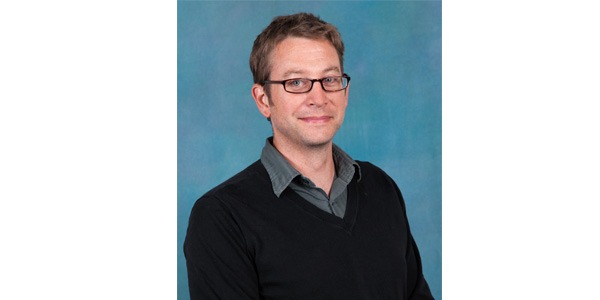Dr. Barry Lutz started as tenure-track assistant professor of bioengineering on Sept. 16. Dr. Lutz has been a UW Bioengineering faculty member since 2009, and most recently held an appointment as research assistant professor. As a tenure-track faculty member, Dr. Lutz will establish an independent laboratory to continue his research as well as develop and teach new academic courses.
In his research, Dr. Lutz pursues economically sustainable medical device technologies appropriate for use in low-income global markets. His research manipulates the physical processes of flow, transport and reaction. With an enhanced understanding of these physical phenomena, Dr. Lutz devises improved, or entirely new, devices for detecting and treating disease. He also leads commercialization-driven projects to develop an implantable microfluidic device.
A recipient of the 2014 BioE Outstanding Faculty Award, Dr. Lutz is well known for his dedication to helping students succeed in research and academics. He challenges students to master research projects, inspiring their confidence and joy for science. He motivates students to gain technical expertise and develop strong problem solving abilities.
Dr. Lutz is a chemical engineer by training, with degrees from the University of Texas and the University of Washington. After earning his Ph.D. at UW in 2003, Dr. Lutz accepted a postdoctoral position at UW Electrical Engineering’s Microscale Life Sciences Center. As he worked on projects supporting the center’s research investigating the dissimilar behavior of genetically-identical cells, his interest turned toward biological applications of engineering.
He continued to pursue engineering solutions to biomedical problems at Intel Corporation, where he developed early stage technologies to improve human health. He worked with collaborators from Fred Hutchinson Cancer Research Center and Intel researchers to apply nanoparticle probes to multi-target detection in human cancer tissues.
As research assistant professor, Dr. Lutz worked alongside UW BioE Professor Paul Yager on projects developing instrument-free diagnostic devices simple enough for untrained users to use in the home, the developing world and other limited-resource settings. Dr. Lutz also partnered with UW/Seattle Children’s Hospital pediatric neurosurgeon Dr. Samuel Browd to develop improved technologies to treat neurological disorders related to the production and regulation of cerebral spinal fluid. The team’s efforts resulted in a startup company, Aqueduct. Formed in 2011, Aqueduct seeks to revolutionize medical technology used to treat hydrocephalus and related neurological conditions, improving patients’ quality of life and reducing health care costs.
Dr. Lutz’ awards include:
- Outstanding Faculty Mentor Award, UW Department of Bioengineering
- National Effective Teaching Institute, American Society of Engineering Education
- Best Technology Award, UW Business Plan Competition
- American Vacuum Society Young Investigator Award, AVS International Symposium
- NIH/NHGRI Genome Training Grant, UW Department of Genome Sciences
- Charles Tobias Memorial Student Poster Award at the Joint Meeting of the Electromechanical Society and International Society of Electrochemistry
- NSF East Asia and Pacific Institute Fellowship from the Chemistry Department, Tohoku University, Sendai, Japan



